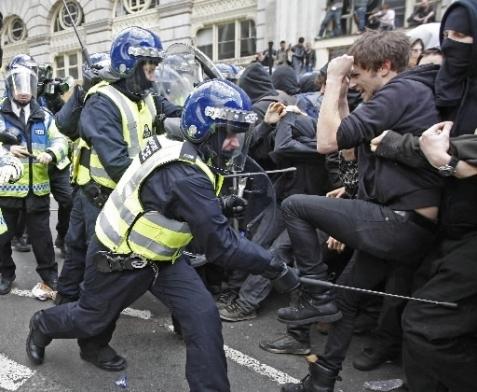On Aug. 6, London, England was set ablaze by a series of unprecedented riots that quickly spread from one borough to the next, leaving five dead and hundreds more injured.
Several days before the riots began, police shot and killed 29-year-old Mark Duggan during a planned attempt to arrest him. The peaceful demonstration calling for answers in protest of Duggan’s death was followed by riots, arson, and looting in the north London neighborhood of Tottenham. The news of the violence in Tottenham spread quickly and set off more riots close by in the London districts of Brixton, Enfield, Islington and Wood Green, according to the BBC.
Although it seems the violence might have been a direct response to the death of Duggan, British Prime Minster David Cameron does not agree.
“It is simply preposterous for anyone to suggest that people looting in Tottenham … were in any way doing so because of the death of Mark Duggan,” Cameron said in a speech following the riots. “The young people stealing flat screen televisions and burning shops was not about politics or protest. It was about theft.”
Robert Duncan, assistant professor of political science, agreed with Cameron. “They may have used (Duggan’s) death as an excuse but it was simply thrill-seeking hooligans from the soccer stadiums who wanted to smash and grab for a new TV set,” Duncan said.
Ironically though, the damage and security concerns caused by the riots actually forced the British Football Association to cancel an international friendly between England and the Netherlands, and the first match for English Premier League team Tottenham Hotspur Football Club.
According to the Guardian, these soccer games were cancelled because there would not have been enough security, but the Metropolitan Police have received some criticism for their poor reaction to the riots.
Associate Professor of Political Science Ken Gilmore believes the police did well to protect the banks and larger businesses, which unfortunately allowed the violence to spread into the lower income communities. This decision may have saved the more important businesses, but it facilitated more damage to the city.
As a result of the riots, which finally ended on Aug. 10, over 100 homes and even more businesses were destroyed. The BBC reported that there would be about £200 million ($327 million) paid out by insurance companies as a result of the damage. Also, Scotland Yard said that 2,006 people have been arrested so far and, of those, 1,135 have been charged, according to the BBC.
Social media services such as Facebook, Twitter, and Blackberry Messenger have been partially blamed for the spread of the violence because the rioters were able to easily communicate and plan attacks, according to the Guardian. Although the British government decided against restricting these services, Duncan said that he would have had no problem doing so, saying that it would be “smart law enforcement to monitor the sites, so that they could prevent more violence.”
The Prime Minister also blamed the riots on a culture of entitlement among Britain’s youth, but Gilmore believes that it is too complicated to simply blame the culture.
According to Gilmore, the first step to ensure this does not happen again “is to look at the underlying social, economic, and political conditions in Britain that might lead to this type of violence.”

